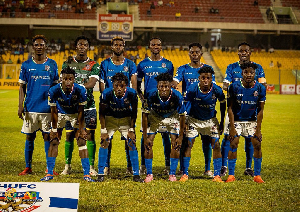A research study by the University of Cape Coast (UCC) and two other institutions shows that the operation of the Newmont Ahafo Mine has adversely impacted the lives of women in the mining communities.
It said since the start of mining in the Asutifi North District by the multi-national company, the women had been denied access to potable water, farmlands and other means of economic livelihood.
The Department of Environmental Science of the University carried the study jointly with the Water Research Institute (WRI) and the Centre for Environmental Impact Analysis (CEIA).
This was done in six months and funded by Wassa Communities Affected by Mining (WACAM) - an organisation at the forefront of raising national awareness on mining issues for the protection of community rights.
Meanwhile, there is a tense standoff between the company and the people of Kantinka, a community, located right inside the mining concession.
About 36 people there are refusing to relocate to allow the levelling of their houses and pave way for digging out the gold ore.
Mr. Yakubu Adusah, their Spokesperson, told the Ghana News Agency (GNA) that they would not leave until they had been paid appropriate compensation.
“We are not leaving if Newmont does not give to us what we rightly deserve and properly resettle us.”
They are unanimous in their decision that the compensation offer by the company is inadequate.
An official of the company, who asked not to be identified said the area was under moratorium and that it had been the habit of some of the people to sneak to construct “speculative buildings and structures” in such places to obtain undue compensation.
Business News of Thursday, 16 February 2017
Source: GNA
Damning report on Newmont Ahafo Mine operation
 Newmont Ghana logo
Newmont Ghana logo












